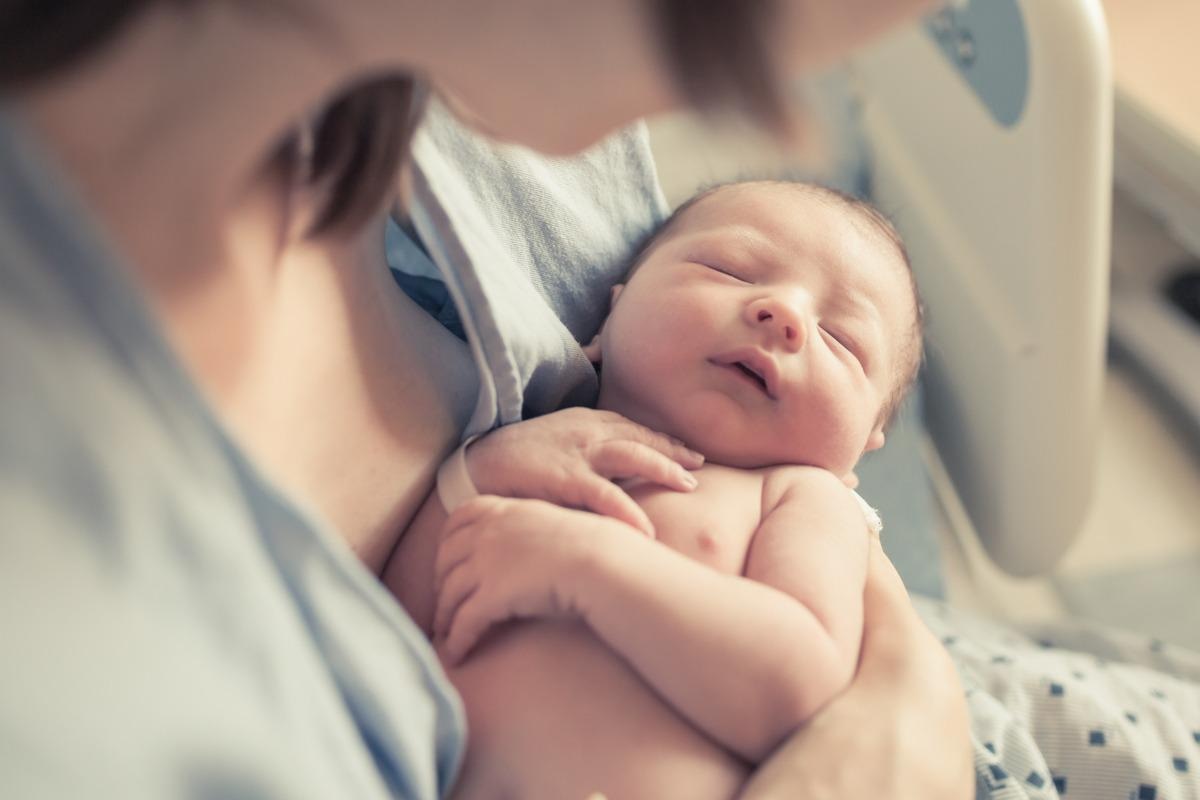Even as the severe acute respiratory syndrome coronavirus 2 (SARS-CoV-2) continues to spread throughout the world, killing over 6.2 million people to date, there remains considerable controversy regarding the impact of the pathogen on children and fetuses during pregnancy. A new American Journal of Obstetrics and Gynecology study provides new information on the impact of the coronavirus disease 2019 (COVID-19) on pregnancy and postpartum outcomes.

Study: Effects of Prenatal Exposure to Maternal COVID-19 and Perinatal Care on Neonatal Outcome: Results from the INTERCOVID Multinational Cohort Study. Image Credit: KieferPix / Shutterstock.com
Introduction
The period of pregnancy is traditionally surrounded by joy as well as apprehension, as there are numerous factors that contribute to a healthy outcome. Thus, the emergence of SARS-CoV-2 and how it affects both pregnant women and their unborn children have been the focus of considerable research.
Earlier research has suggested a mild impact of COVID-19 in neonates, though pregnant women have been considered to be at a higher risk of infection. These findings led to the initiative called INTERCOVID, which is a multi-center and multi-nation study of pregnancy complicated by COVID-19.
The present study assesses how maternal COVID-19 affects fetal and neonatal outcomes. Herein, the researchers also examined how the mode of delivery, breastfeeding, and common neonatal care practices can contribute to vertical transmission.
Study findings
The current study was conducted in 18 countries and involved more than 40 centers. The presence of COVID-19 in pregnancy was diagnosed by the clinical features or radiological features in the lung (n=55), or laboratory tests (~690).
Approximately 570 pregnant women with COVID-19 were matched with two controls each at enrollment, at the same stage of pregnancy, and at the same level of care. All study participants were closely monitored until they were discharged from the hospital.
The rate of Cesarean section (C-section) was higher, with more than half the COVID-19-positive mothers reporting delivery by this mode as compared to less than 40% in controls. Similarly, complications of pregnancy were more common in the COVID-19 mothers who underwent a C-section, including hypertensive disorders and fetal distress.
Almost 590 neonates were born to women infected with COVID-19 in pregnancy, as compared to over 1,500 neonates born to control mothers. The risk of preterm birth, lower birth weight, and smaller babies were all higher in the former. This included spontaneous and medically indicated preterm birth.
Fetal distress, neonatal intensive care unit (NICU) admission and other complications of the neonatal period were more likely to occur in babies born to COVID-19-positive mothers, independent of the test status of the newborns. However, babies who tested positive were at a higher risk and were one week younger at birth as compared to those born to women without COVID-19.
Interestingly, COVID-19-affected mothers were more likely to have had previous neonatal deaths, preterm births, or low birth weight babies than the controls.
The risk of neonates testing positive for COVID-19 was increased with longer periods of in utero exposure, that is, with maternal infection at an earlier term of pregnancy. Babies born by C-section were 2.4 times more likely to be at risk of testing positive, independent of the severity of the illness in the mother.
Overall, two out of three babies born to mothers with COVID-19 had a negative test result, while 28% were untested because they were asymptomatic. The rest tested positive.
The longer the gap between infection and delivery, the higher the chances were that the newborn would return a positive test at a lower gestational age. Thus, babies were twice as likely to be infected if the delivery occurred seven days after maternal infection and 4.5 times more likely if it occurred at 14 days.
Babies who tested positive for COVID-19 were at higher risk for adverse outcomes, including admission to the NICU, neurological features (five times), fever, gut symptoms (six times), respiratory symptoms (more than three times), and death, independent of the higher risk associated with premature birth when compared to the babies born to control mothers. These babies were more than five times more likely to require NICU admission as well.
Encouragingly, no association was found between common care practices such as skin-to-skin contact, rooming-in, and breastfeeding, and the risk of a positive test in the neonate. Notably, asymptomatic neonates were more often breastfed.
Implications
The current study involved different cohorts from many different countries and centers. The findings from this study confirm a higher risk of complications for both pregnant or recently delivered women, as well as their babies, who were diagnosed with COVID-19 in pregnancy.
The presence of maternal COVID-19 increased the risk that the baby would test positive and require a C-section. This might be due to the lower intake of antibody-rich colostrum by the neonate following a maternal C-section, which could increase the risk of infection.
Vaginal birth remains the safest option whenever possible, even with maternal COVID-19. Moreover, other baby care practices that encourage maternal-infant bonding and promote breastfeeding may safely be continued without a higher risk of vertical transmission.
Journal reference:
- Giuliani, F., Gunier, R. B., Deantoni, S., et al. (2022). Effects of Prenatal Exposure to Maternal COVID-19 and Perinatal Care on Neonatal Outcome: Results from the INTERCOVID Multinational Cohort Study. American Journal of Obstetrics and Gynecology. doi:10.1016/j.ajog.2022.04.019.